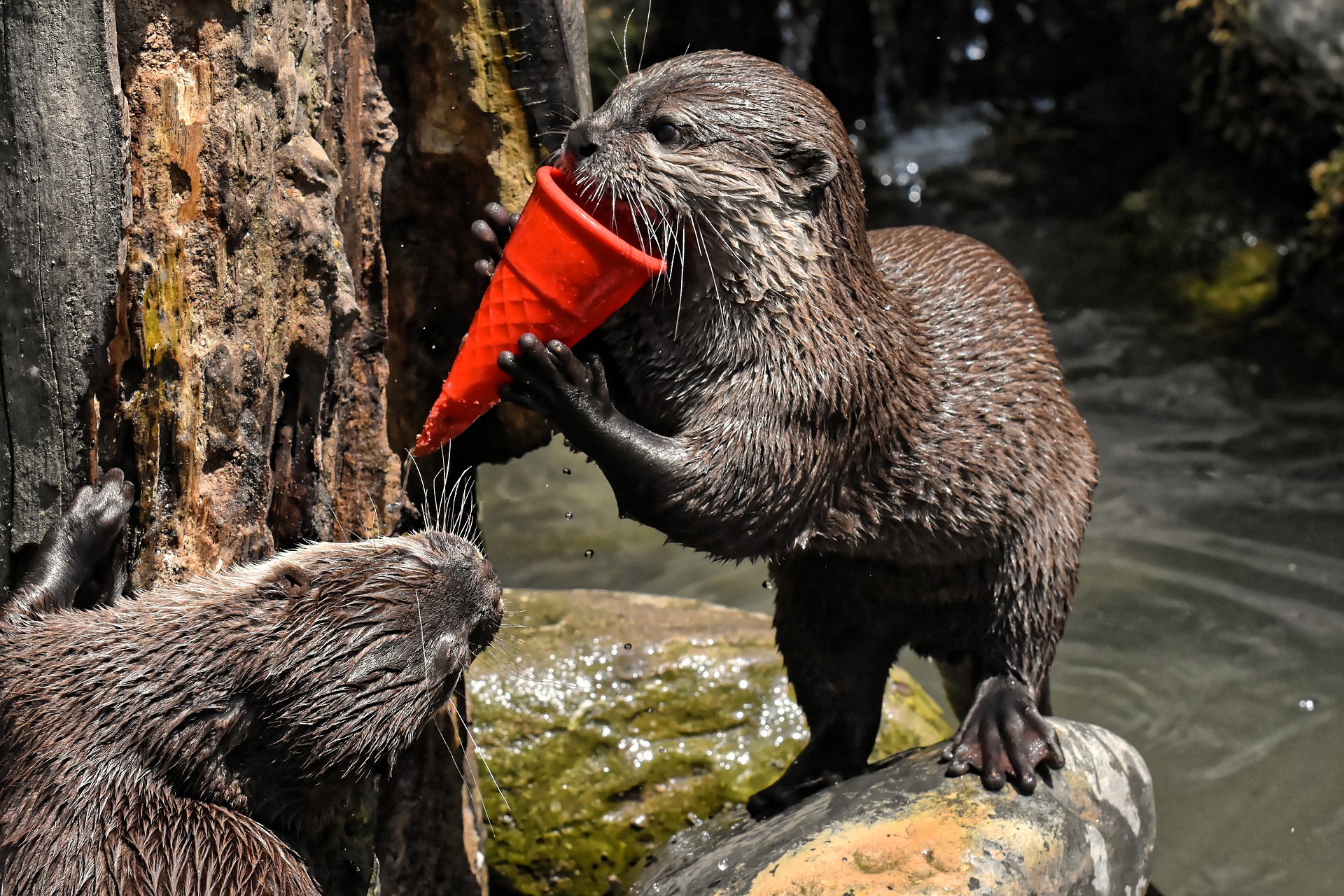
Hunger is likely to be the main driver of stone juggling in otters, new research has shown.
Researchers from the University of Exeter have carried out an extensive study into why captive otters tend to play with stones, commonly referred to as “rock juggling”.
The dextrous mammals are often seen lying on their backs and batting the stones into the air, catching them and rolling them around their chests and necks.
Experts had suggested the behaviour might help the animals practise the foraging skills they need to extract foods from complex prey such as mussels and clams.
However, while the new research showed that young and older otters tended to juggle more than reproductive adults, these frequent jugglers were no better at solving food puzzles – suggesting the practice does not hone foraging skills.
Instead, the study showed that otters juggle more when hungry, in anticipation of feeding times in captivity – suggesting that it could be excitement for food.
The study is published in Royal Society Open Science on Wednesday, May 6th 2020.
Mari-Lisa Allison, lead author of the study said: “Zoo visitors are often enthralled by the otters’ playfulness. Surprisingly, very few studies have investigated why otters are so keen to juggle stones. Our study provides a glimpse into this fascinating behaviour. While hunger is likely to drive rock juggling in the moment, the ultimate function of the behaviour is still a mystery.”
For the new study, the research team analysed rock juggling in Asian small-clawed (Aonyx cinereus) and smooth-coated (Lutrogale perspicillata) otters found in zoo environments.
While the species are closely related, Asian small-clawed otters perform extractive foraging movements to exploit crabs and shellfish, while smooth-coated otters forage on fish.
The team set a series of puzzles for the otters to solve in order to gain access to a reward of food, to see whether the otters that juggled more frequently were faster at solving the puzzles. They also investigated whether sex, age and hunger levels could explain why some otters juggled more than others.
The team found that both juvenile and senior otters juggled more than adults. The authors suggested that the function of the behaviour may change over an otter’s lifetime – aiding development in juveniles while potentially keeping the brain active in seniors. Otter parents may have been juggling less as they did not have the time while looking after their pups. However, rock-juggling frequency did not differ between species or sexes.
Crucially, otters juggled more when “hungry”, indicating that juggling may be a misdirected behaviour in anticipation of feeding time.
Senior author Dr Neeltje Boogert added: “While it did not appear that frequent jugglers solved food puzzles faster, more research is needed to exclude the “practise makes perfect” hypothesis to explain rock juggling in otters.
































